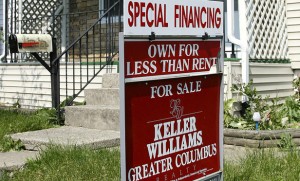Independence Day 'big win' for thousands of homeowner's with distressed mortgages
Mon Jul 7, 2014 by Oppenheim Law on Florida Law News
The following article was written in the Daily Business Review by Samantha Joseph with excerpts by Roy Oppenheim, Oppenheim Law.

A deadline for lenders to collect balances on distressed mortgages was a “big win” for thousands of homeowners.
Florida’s Fair Foreclosure Act, which took effect July 1, 2013, gave lenders one year from the date of foreclosure to sue homeowners for deficiencies or balances owed on mortgages.
The new law also limited the amount of time banks have to sue to recover homeowner deficiencies. Before the Fair Foreclosure Act, Florida banks had five years after a foreclosure judgment to seek a judgment to collect the unpaid mortgage balance. But the law closed the five-year window that would allow lenders to file suit for deficiencies dating back to 2008.
Under the new law, lenders had until Tuesday to sue to collect outstanding balances on foreclosure judgments issued between July 1, 2009, and July 1, 2013.
“This is a big win for all homeowners who should have been afraid for their financial wellbeing because of these deficiency judgments that are out there,” said foreclosure defense attorney Bruce Jacobs, principal of Bruce Jacobs & Associates in Miami. “As of July 1, banks don’t have the right to come after you anymore” for the group in the 2008-2013 window.
Foreclosure defense attorneys estimated at least 100,000 South Floridians benefited from the deadline. Courts don’t track deficiency filings, but data from the Office of State Courts Administrator show 506,775 foreclosure filings in Miami-Dade, Broward and Palm Beach counties between July 2008 and July 2013.
“There’s been a flurry of banks filing for deficiency cases before the clock struck midnight,” said Roy Oppenheim, cofounder and senior partner at Oppenheim Law in Weston. “We’ve seen a dramatic increase in the last several weeks with banks filing, and we’ve been busy on that score.”
Oppenheim said his caseload doubled in the months leading up to the deadline, and he’s still juggling 50 deficiency suits.
But the numbers weren’t as high as they could have been.
“They increased 100 percent from previous years, but they didn’t go up 20-fold, which they should have,” Oppenheim said. “Many times, if banks go to trial and negotiate a settlement at trial, they’ll often waive the deficiency. Those that didn’t file by the deadline probably didn’t give up that much.”
For many lenders, the question was whether they should spend the time and money attempting to collect judgments from distressed homeowners who likely couldn’t pay.
“Sometimes it’s not worth the headache,” said Anthony DiMarco, executive vice president of government relations for the Florida Bankers Association. “If you can’t collect, there’s nothing to go after. In a lot of these cases, banks decide, ‘If I can’t get enough money, I’m just not going to bother.’ ”
That’s good news for thousands of South Florida homeowners, foreclosure defense attorneys said.
“Apparently the financial services company dropped the ball in going after them,” Jacobs said. “After July 1, a lot of lenders won’t be able to collect.”
But if lenders do file suit in cases affected by this week’s deadline, Jacobs said it will be up to mortgage holders to use the statute of limitations as an affirmative defense.
For many lenders, the question was whether they should spend the time and money attempting to collect judgments from distressed homeowners who likely couldn’t pay.
“Sometimes it’s not worth the headache,” said Anthony DiMarco, executive vice president of government relations for the Florida Bankers Association. “If you can’t collect, there’s nothing to go after. In a lot of these cases, banks decide, ‘If I can’t get enough money, I’m just not going to bother.’ ”
That’s good news for thousands of South Florida homeowners, foreclosure defense attorneys said.
“Apparently the financial services company dropped the ball in going after them,” Jacobs said. “After July 1, a lot of lenders won’t be able to collect.”
But if lenders do file suit in cases affected by this week’s deadline, Jacobs said it will be up to mortgage holders to use the statute of limitations as an affirmative defense.

